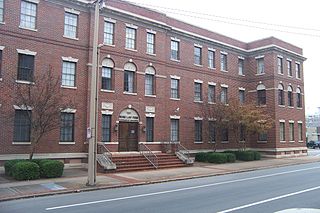Related Research Articles

William Jefferson Clinton is an American lawyer and politician who served as the 42nd president of the United States from 1993 to 2001. A member of the Democratic Party, he previously served as the attorney general of Arkansas from 1977 to 1979 and as the governor of Arkansas from 1979 to 1981, and again from 1983 to 1992. Clinton, whose policies reflected a centrist "Third Way" political philosophy, became known as a New Democrat.

Vincent Walker Foster Jr. was an American attorney who served as deputy White House counsel during the first six months of the Clinton administration.
The Whitewater controversy, Whitewater scandal, Whitewatergate, or simply Whitewater, was an American political controversy during the 1990s. It began with an investigation into the real estate investments of Bill and Hillary Clinton and their associates, Jim and Susan McDougal, in the Whitewater Development Corporation. This failed business venture was incorporated in 1979 with the purpose of developing vacation properties on land along the White River near Flippin, Arkansas.
"Vast right-wing conspiracy" is a phrase popularized by a 1995 memo by political opposition researcher Chris Lehane and then referenced in 1998 by the then First Lady of the United States Hillary Clinton, in defense of her husband, President Bill Clinton, characterizing the continued allegations of scandal against her and her husband, including the Lewinsky scandal, as part of a conspiracy by Clinton's political enemies. The term has been used since, including in a question posed to Bill Clinton in 2009 to describe verbal attacks on Barack Obama during his early presidency. Hillary Clinton mentioned it again during her 2016 presidential campaign.
The White House FBI files controversy of the Clinton Administration, often referred to as Filegate, arose in June 1996 around improper access in 1993 and 1994 to FBI security-clearance documents. Craig Livingstone, director of the White House's Office of Personnel Security, improperly requested, and received from the FBI, background reports concerning several hundred individuals without asking permission. The revelations provoked a strong political and press reaction because many of the files covered White House employees from previous Republican administrations, including top presidential advisors. Under criticism, Livingstone resigned from his position. Allegations were made that senior White House figures, including First Lady Hillary Rodham Clinton, may have requested and read the files for political purposes, and that the First Lady had authorized the hiring of the underqualified Livingstone.
The 1996 United States campaign finance controversy, sometimes referred to as Chinagate, was an effort by the People's Republic of China to influence domestic American politics prior to and during the Clinton administration and also involved the fundraising practices of the administration itself.
Webster Lee "Webb" Hubbell is a former United States Associate Attorney General from 1993 to 1994 who as part of the Whitewater controversy pled guilty to one count of wire fraud and one count of failing to disclose a conflict of interest, and was sentenced to 21 months in prison.
The White House travel office controversy, sometimes referred to as Travelgate, was the first major ethics controversy of the Clinton administration. It began in May 1993, when seven employees of the White House Travel Office were fired. This action was unusual because executive-branch employees typically remain in their posts for many years.

Rose Law Firm is an American law firm headquartered in Little Rock, Arkansas.
The Office of Special Counsel was an office of the United States Department of Justice established by provisions in the Ethics in Government Act that expired in 1999. The provisions were replaced by Department of Justice regulation 28 CFR Part 600, which created the successor office of special counsel. The current regulations were drafted by former acting solicitor general Neal Katyal.

Bruce R. Lindsey is an American lawyer and non-profit executive. He served in the White House during the Presidency of Bill Clinton. He was named in a lawsuit during the Whitewater controversy, and he testified before a grand jury regarding the sexual misconduct allegations surrounding Bill Clinton in the run-up to his impeachment. He was a partner of Wright, Lindsey & Jennings, a Little Rock, Arkansas-based law firm, and served as chairman of the Clinton Foundation.

John Hogan Gidley is an American political aide who served as White House Deputy Press Secretary from 2019 to 2020 in the Donald Trump administration. In July 2020, Gidley became the press secretary of Trump's reelection campaign.
Hillaryland was the self-designated name of a group of core advisors to Hillary Clinton, when she was First Lady of the United States and again when, as United States Senator, she was one of the Democratic Party candidates for president in the 2008 U.S. election.
Deputy White House counsel Vince Foster was found dead in Fort Marcy Park off the George Washington Parkway in Virginia, outside Washington, D.C., on July 20, 1993. His death was ruled a suicide by five official investigations.

The Clinton body count is a conspiracy theory centered around the belief that former U.S. President Bill Clinton and his wife, former U.S. Secretary of State Hillary Clinton, have secretly had their political opponents murdered, often made to look like suicides, totaling as many as 50 or more listed victims. The Congressional Record (1994) stated that the compiler of the original list, Linda Thompson, admitted she had 'no direct evidence' of Clinton killing anyone. Indeed, she says the deaths were probably caused by 'people trying to control the president' but refuses to say who they were."
Beth Nolan was vice president and general counsel of the George Washington University. She was also Bill Clinton's final White House Counsel, as well as the first woman to hold the office. Prior to serving as White House Counsel, Nolan worked in other White House and Department of Justice positions, taught law, and worked in private practice.

Norma Holloway Johnson, born Normalie Loyce Holloway, was a former United States district judge who served as the chief judge of the United States District Court for the District of Columbia, and was the first African-American woman to serve as chief judge of that United States district court. Notably, Johnson presided over the grand jury investigation into President Bill Clinton’s affair with Monica Lewinsky.
Carol Rasco is an American political aide and advocate for disability rights, literacy, and children who served as Director of the Domestic Policy Council under President Bill Clinton from 1993 to 1996. She has been described as a trusted aide to the former president and governor and, during his absence due to his presidential campaign, was credited with running Arkansas' daily business. She cites her life experiences as the mother of a child with a disability as motivation for her political advocacy and influence and has most recently worked most with literacy projects.

Hillary Clinton served as the first lady of the United States from 1993 until 2001, during the presidency of her husband Bill Clinton.
Michael Edmund Shaheen Jr. was an American government official and lawyer who served as the first director of the United States Department of Justice's Office of Professional Responsibility (OPR) from 1975 to 1997. While director of OPR, Shaheen led inquiries into government officials under five presidents, including multiple U.S. Attorneys General, in some cases leading to their removal or resignation.
References
- ↑ Wednesday, John Henry; Jan. 25; Read, 2006 11:54 Am 1 Min. "Bill Kennedy Takes General Counsel Post With Cooper Communities". Arkansas Business. Retrieved 2021-11-15.
{{cite web}}: CS1 maint: numeric names: authors list (link) - 1 2 "Bill Kennedy Takes General Counsel Post With Cooper Communities". 2006-01-25. Retrieved 2014-05-09.
- ↑ "Victim of circumstance". Salon.com . 1998-07-27.
- 1 2 "Washingtonpost.com: For White House Travel Office, a Two-Year Trip of Trouble". www.washingtonpost.com. Retrieved 2022-06-07.
- ↑ "White House, friends puzzled by apparent suicide of aide". Baltimore Sun. Retrieved 2022-06-06.
- ↑ "Clinton Orders Probe Into Aide's Death : White House: Deputy Counsel Vince Foster's office is sealed prior to search by federal agents. Officials call his apparent suicide 'inexplicable'". Los Angeles Times. 1993-07-22. Retrieved 2022-06-06.
- ↑ "Clinton Aide Is Penalized in Tax Dispute : White House: Associate Counsel William H. Kennedy III is relieved of some duties. He had failed to pay Social Security levies for a nanny". Los Angeles Times. 1994-03-24. Retrieved 2022-06-06.
- ↑ Novak, Robert D. (1995-12-21). "GOVERNMENT LAWYERS, PRIVATE MATTERS". Washington Post. ISSN 0190-8286 . Retrieved 2022-06-06.
- 1 2 "THE KENNEDY NOTES". Washington Post. ISSN 0190-8286 . Retrieved 2022-06-06.
- ↑ "Judicial Watch Interim Report". www.judicialwatch.org. Retrieved 2022-09-24.
- ↑ "44 - Clinton-era 'Filegate' case tossed out". The Washington Post . Archived from the original on September 24, 2012. Retrieved 2022-09-24.
- 1 2 Kuntz, Phil; Freedman, Alix; Harwood, John; Fields, Gary (2001-02-07). "Connected Democrats Won Pardons From Clinton; Hearings Gear Up" . Wall Street Journal. ISSN 0099-9660 . Retrieved 2022-06-01.
- 1 2 3 "President Clinton Appoints William H. Kennedy III to the Board of Directors Of the Student Loan Marketing Association, A Wholly Owned Subsidiary of USA Education". Archived from the original on 2016-03-03. Retrieved 2014-05-09.
- ↑ "William H. Kennedy Jr.: chairman and CEO, National Bank of Commerce Pine Bluff, Arkansas" . Retrieved 2014-05-09.
- ↑ Novak, Robert D. (1999-07-08). "'Filegate' Lives on". Washington Post. ISSN 0190-8286 . Retrieved 2022-06-06.